- Home
- Michael White
Jack Pendragon - 02 - Borgia Ring Page 13
Jack Pendragon - 02 - Borgia Ring Read online
Page 13
‘No idea. If there is another murder victim, the crime would have occurred a very long time ago,’ Pendragon retorted. ‘The bone is at least a hundred years old.’
The journalists all started talking at once. After a moment, Pendragon raised his hand and they quietened down. ‘I’m afraid that is all the information we have at this time. We will keep you informed of any new developments.’
‘Chief Inspector, do you have anything to say about the recent spotlighting of your private life?’
‘No comment,’ he responded, and turned towards the doors to the police station.
‘No comment, Inspector? You don’t wish to respond?’ Taylor pressed him.
Pendragon paused for a second and ran one hand over his brow. Pushing the door open, he strode purposefully into the station.
It was almost 7.30 by the time Pendragon got back to his flat. He felt exhausted, but it was not just the demands of the job that made him feel so tired. Containing his inner frustration and anger was exhausting. He had always viewed the press with suspicion. The memory of the media intrusion when his daughter had disappeared remained a bitter one. The local papers in Oxford had pointed out the irony of the fact that a senior cop could do nothing to protect his own daughter. It had been obscenely cruel and had hurt both him and his wife deeply. His marriage would have fallen apart slowly even without this added burden, but he could never forgive the press for that insult and had kept them at a distance ever since.
And now, this shit of a local journalist had regurgitated the same bile. Fine, poke fun at the fact that Jean had left him for a woman. He could deal with that. But Amanda? He could still see her so clearly in his mind. She would be a teenager now. And perhaps indeed she was. Perhaps she was living safely somewhere with someone else, and one day she would return to his life. But long ago he had decided never consciously to think these thoughts, they were too agonising, too destructive. No, the only way to maintain his sanity was to imagine his daughter dead. Long dead. At peace.
When Amanda disappeared he had thrown himself into his work, and that had been another factor in the dissolution of his marriage. Ironically, apart from offering him a much-needed distraction, his dedication to duty had done no one much good. Although he did his job well and was respected by his colleagues, he was never promoted. He had once been a high-flier, destined for great things – Chief Superintendent perhaps, maybe even Commander – but suddenly all doors had closed to him, his career had ground to a halt.
Then Jean had finally upped sticks and gone. One evening Pendragon came home extremely late to find she had removed her clothes from the wardrobe, taken a few personal items and left him a brief note. He had done his best to keep everything under wraps but naturally the story got out. Suddenly his position at Headington Police Station near Oxford was untenable. He was owed months of leave and took himself off to Ireland, losing himself in the Derry countryside, drinking Guinness in village pubs and walking twenty miles a day.
Returning to Oxford, he filed for divorce, handed in his resignation and rented out his house. Through an old friend from Police College days, he was offered the position at Brick Lane. At first, he had been a little worried about taking it on. He had grown up within shouting distance of his new station, but had barely been back since graduating from Oxford twenty-five years earlier. Part of him doubted the wisdom of returning to the place in which he had grown up. So much had changed in his life since he had last walked these streets, so much had changed in him. Indeed, he bore almost no resemblance now to the snotty-nosed young boy who had played on Mile End Road in short trousers, his knees cut and filthy from playing soldiers on waste ground left derelict by Luftwaffe bombs twenty years before he was born.
He looked around his grimy flat and sighed. He had just put Bill Evans’s Sunday at the Village Vanguard on the turntable when he heard a soft tap at the front door. He turned the music down and went to answer it. Sue Latimer was standing in the hall outside, holding a bottle of whisky tied with a blue ribbon. ‘A small token of thanks,’ she said, giving it to him.
‘For what?’
‘Being my knight in shining armour.’
Pendragon laughed and took the bottle. ‘You really didn’t …’ He saw Sue peering into the room beyond him. ‘Come in.’ He opened the door wide and let her through ahead of him. ‘I’m sorry, it’s not much to write home about. Can I get you a drink?’
‘Any wine?’ she asked, gazing around the room. ‘I love Bill Evans.’
‘You do?’ Pendragon said, going to the kitchenette.
‘You sound surprised.’
‘Oh, it’s just that, well, I didn’t think many people knew about him these days. Jazz isn’t exactly fashionable any more.’
‘I grew up with it. I used to sing in a little band.’
‘Really?’
‘Oh, just amateur stuff, standards. Fun, though.’
Pendragon was smiling, holding two glasses.
‘You having both of those?’ Sue asked.
He handed her one. ‘Cheers.’ He raised his glass. ‘You know, you really didn’t need to buy that bottle. I’m afraid I wasn’t much use.’
‘Nonsense! Who knows what would have happened if you hadn’t arrived at just the right moment? At least I only lost my purse.’
Pendragon shrugged. ‘I got one of my sergeants to follow it up, but without seeing the thief’s face, it’s pretty hopeless. You cancelled the credit cards?’
‘Of course, and thankfully there were only a couple of small notes in the purse. Anyway, the whisky was only partly to thank you. I thought you might need cheering up.’
He gave her a quizzical look.
‘I saw the paper this morning,’
‘Oh.’
‘It amazes me how low tabloid journalists can stoop.’
‘Yes, well. It’s done. It’s in print.’
They fell silent for a moment. He topped up Sue’s glass and they went to sit on the sofa.
‘So, my private life’s been smeared all over the paper, but apart from learning that you like jazz and you can sing, I know nothing about you,’ he said.
‘Well, you already have the interesting bits,’ she replied. ‘Born in Sheffield, forty … something years ago.’ She grinned and took a sip of her whisky. ‘I’m a lecturer at Queen Mary College: psychology. I was married for twelve years, been divorced for three. No kids. There – the scintillating biography of Dr Sue Latimer.’
Pendragon shook his head and drained his glass.
‘What?’
‘Oh, nothing.’
She held his eye for a second.
‘It’s just a shame you think so little of yourself. I do the same thing. I think its collateral damage from divorce.’
She was nodding. ‘Maybe. Although I have to say, I felt liberated by it at the time. Anyway, I’m the psychologist.’ She laughed, then looked at her watch.
‘You have to be somewhere?’ Pendragon asked as she finished her drink.
‘’Fraid so. I have an evening lecture for part-time students. Poor souls have to listen to me drone on after they finish at the bank or the office.’
‘There you go again.’
She smiled. ‘Old habits …’
He led her to the door. He went to shake her hand, but Sue leaned towards him and pecked him on the cheek. ‘Oh, I almost forgot,’ she said as she stepped into the hallway. ‘Can I tempt you to dinner at my place tomorrow night? Nothing fancy, I’m afraid. I’m no Delia Smith.’
‘Very glad to hear it,’ Pendragon responded. ‘And, yes, I’d be delighted.’
‘Eight-thirty?’
‘I’ll be there.’
Stepney, Tuesday 7 June, 11.45 p.m.
It was a piece of waste ground popular with kids during the day and on into the dusk; now, with the sky lit only by pinpricks of stars, it was deserted.
The man wore a long, flowing dress made from rich crimson velvet. The full skirt fell away beneath a tight bodice laced at the fron
t and pushed up and out with the aid of tissue paper and cotton wool. The synthetic threads of a black wig teased the top of the bodice and flowed over the shoulders. At the back, the wig had been plaited with great care. Gold silk threads had been woven into the hair. To finish off the costume, he had placed on his head a gold band intertwined with small white roses on slender stems. On his feet he wore gold silk slippers, a little scuffed and dirty from the dried summer mud of the field. It all clashed horribly with the white latex gloves just visible beneath frilly lace sleeves. In his right hand, the man held a carrying cage. A muzzled spaniel had been squeezed inside. It whined pathetically.
In the distance stood a row of tenements, brightly lit at this hour. On the eastern side of the field, a railway bridge could be seen silhouetted against the stars. The man came on to the waste ground through a rusted metal gate under the railway bridge. It was a hot night and the heavy velvet dress made him sweat profusely. To make things worse, the cage seemed to grow heavier with every step.
But the darkest point was not far away.
A hundred feet into the field, under the faint starlight, the man had become almost invisible, only his white, sweaty face visible beneath the black braids.
The man in the red dress lowered the cage to the ground. The dog had been whimpering through its muzzle ever since it had been taken from the boot of the car. The cage was too small for it to move around in. The poor animal just stared, terrified, looking this way and that, scraping its head against the steel mesh at the front of the container as it tried to turn.
The man opened a small leather shoulder bag and lifted out a metal tin. Inside lay two hypodermics. He removed the smaller of the two, eased the plunger in a fraction and held up the dripping needle to the faint light. The dog yelped as the needle sank into the flesh of its hindquarters, the sound stifled by the muzzle. The animal panicked and started to claw at the grille, pushing against it and trying to bite through the mesh. Then it froze, and crumpled.
The man opened the top of the cage and cautiously lifted out the spaniel, laying it on its side in the grass. The dog eyed the man. It knew instinctively that something was very wrong but could do nothing about it. Its pupils were dark and big, the look of the calf when it smells the abattoir.
The man removed the second, larger syringe. It contained an orange-brown liquid. Without hesitating, he bent down over the dog and grabbed a lump of fur and flesh just beneath its collar. The animal let out a low, almost inaudible moan as the syringe slid in up to the barrel. The man looked away, unable to meet the dog’s eyes.
It began to shake. Its legs flailed the air, paws twitching. Its eyes seemed to grow impossibly large and green foam dribbled over its gums.
The man nudged the dog with the toe of his golden shoe. It was dead, rigid and staring blindly at the stars. From the metal box he withdrew a small plastic container. Inside there was a small glass dish, a pipette and a stoppered test tube. The dog’s head was twisted so that its slack jaws faced the ground. With great care, the man ran the rim of the dish around the fleshy gums, gathering up the foam. Then he used the pipette to transfer this to the test tube. When his task was complete, the man swathed the stoppered test tube in bubble wrap before returning it to the metal box, along with the other equipment. This was then placed carefully in the shoulder bag.
The man looked down at the dog one last time, closed the lids over its eyes and turned back towards the gate. He retraced the path he had taken on to the waste ground, but just as he reached the perimeter there was a sound from across the street. He ducked down. A car drove past along the narrow lane beside the field, its lights sweeping the darkness.
Standing up, the man in the dress hurried across the final few feet of wet grass and mud. He did not notice the hem of his dress catching on the bottom of the metal gate that opened on to the lane, leaving behind a sliver of fabric about two inches long. Stepping on to the wet tarmac, he dashed across the lane and ducked into his car, pulling the folds of the red skirt behind him.
London, Wednesday 8 June, 8.15 a.m.
The kitchen smelt of spilled milk and was filled with the sound of a chart hit on Radio 2. Julie Silver sighed heavily as she opened the door of the dishwasher and realised she had forgotten to switch it on the night before. With a curse, she slammed it shut, put the kids’ breakfast bowls and cups into the sink and ran the tap over them. Leaving them to soak, she turned to the washing machine, extracted a knot of jeans and T-shirts, swung open the door to the drier and shovelled in the clothes.
There was a scratching sound at the door from the garden. Julie turned and saw Rex, the family’s collie. He had something in his mouth. Switching on the drier, she crossed the kitchen and unlocked the door. She only opened it an inch but Rex pushed it back and dashed past her, leaving muddy prints on Julie’s freshly cleaned floor. ‘Oh, for Christ’s sake!’ she exclaimed. ‘You little …’
Rex stood in the middle of the kitchen, his tail wagging, and let the object he was carrying drop from his mouth. It made a clunking sound as it hit the tiles and the dog gave a loud bark. Julie took a couple of steps towards him and Rex crouched down playfully, his tail going twenty to the dozen, saliva dripping from his jaws. Julie squatted down to take a closer look at the object. It was white and vaguely hemispherical. She could barely imagine how Rex had got his jaws around it. She nudged it with a fingertip and it rolled over. Seeing the top half of a human skull, the orbits of the eyes hollow and bleached, Julie screamed and leapt to her feet. Ten seconds later, she was calling the local police station, her hand shaking as she stabbed at the keys.
Sergeant Jez Turner lived in a council flat in a cul-de-sac off Mile End Road. Even in bright sunlight the tower blocks looked grim. Turner’s place was on the fourth floor of Malibu House, a seven-storey edifice built in the mid-60s. As he pushed the button for the lift, Pendragon wondered whether the town planners believed they were being funny or if that ridiculously inappropriate name had come from the genuine belief that they were constructing a future paradise. Either way, the pigeon shit and car fumes were having the last laugh.
The lift had broken down months earlier and had never been repaired so Pendragon took the stairs. Like the rest of the building, they were constructed from plain concrete blocks. The stairwell was covered with graffiti and stank of beer and urine. He could hear a baby crying and then a gruff male voice shouting something unintelligible. The sounds from several different TV channels clashed horribly. Reaching the fourth floor, he turned on to a walkway. He counted at least half a dozen satellite dishes bolted to the ceiling, each pointing out over the car park below. A morbidly obese woman with the sad remnants of a roll-up dangling from her pursed lips was hanging some grey clothing on a makeshift washing line. The DCI gave her a friendly smile as he negotiated his way past her. She merely scowled back. A few doors on he reached 451, knocked, and turned to see the fat woman studying him suspiciously.
The door opened and Pendragon was surprised to see a woman in a wheelchair. She was extremely thin and dressed in a black shell-suit, but her eyes were bright and full of life. When she smiled her face lit up. Pendragon realised she would once have been an extremely attractive woman.
‘It’s all right, you’ve rung the right bell, love,’ she said.
Pendragon glimpsed Jez Turner standing at the end of the hall behind her.
‘Sorry, I …’ Jez began.
The woman put out her hand. ‘Eileen Turner. You must be DCI Pendragon. I hope you’re going to come in for a cuppa.’
‘Mum, we’re in a hurry. The DCI’s gone out of his way to pick me up,’ the young sergeant said.
Pendragon smiled and glanced at Turner who looked embarrassed. Pendragon’s natural inclination was to refuse politely and beat an apologetic retreat, but for some reason this time he responded differently. ‘That would be lovely, thank you.’
Jez stared at him, astonished.
‘Come through to the kitchen then, Chief Inspector.’
&nbs
p; Eileen Turner wheeled herself towards her son who ducked into the kitchen before her. As Pendragon followed them, a black Labrador heaved itself up from a basket and padded over, tail wagging. He crouched down and stroked the dog’s head.
‘That’s Beckham,’ Jez said. ‘He’s getting on. I named him when he was a puppy and Becks first played for England. I went off the name after the incident at the ’ninety-eight World Cup, but he was soon back in favour.’ He ruffled the dog’s fur playfully and kissed the top of his head.
‘Please sit down,’ Eileen Turner said. Jez helped her with the cups. ‘So, how’s my boy doing, Inspector?’
‘Please, call me Jack,’ Pendragon answered. ‘How’s he doing? A credit to the force,’ he declared, straight-faced.
Eileen Turner glanced at her son and beamed. ‘Glad to hear it. Things haven’t always been easy for us. Jez has worked hard.’ She handed Pendragon a china cup and saucer. Catching his sergeant’s anxious expression, he took a sip before placing the tea on the table. ‘Excellent,’ he said.
Beckham sat beside Pendragon and let the DCI pet him. Eileen Turner wheeled herself around the other side of the table and Jez placed her tea in front of her, retreating to the kitchen counter beside the stove to drink his.
‘Jez told me about the terrible murder at the building site. Awful,’ Eileen said, between sips of her tea. ‘I can never understand why people do these things.’
‘I don’t think many people do, Mrs Turner.’
‘It’s only fair you call me Eileen if I’m to address you as Jack,’ she told him, smiling.
‘Quite right … Eileen. I’ve come to accept the fact that people find all sorts of strange reasons to kill.’
‘Usually to do with money.’
‘More often than not. Or at least things linked to money: drugs, gambling, power struggles.’
‘So the crime of passion is a thing of the past?’
‘Depends what you call passion, doesn’t it?’ Jez interjected. ‘Money’s a passion for a lot of people.’

 Paul McCartney's Coat
Paul McCartney's Coat The Cat Is Back!
The Cat Is Back!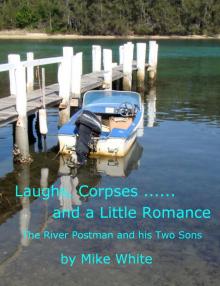 Laughs, Corpses... and a Little Romance
Laughs, Corpses... and a Little Romance The Waiting Room
The Waiting Room Into the Light- Lost in Translation
Into the Light- Lost in Translation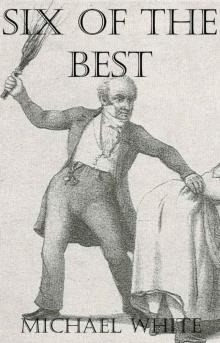 Six of the Best
Six of the Best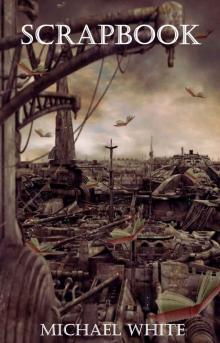 Scrapbook
Scrapbook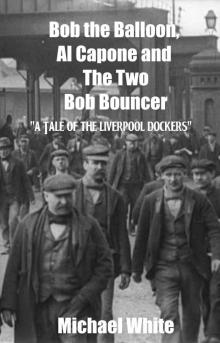 Bob the Balloon, Al Capone and the Two Bob Bouncer
Bob the Balloon, Al Capone and the Two Bob Bouncer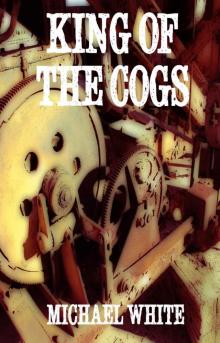 The King of the Cogs
The King of the Cogs A Bad Case of Sigbins
A Bad Case of Sigbins To the Lighthouse
To the Lighthouse Overboard!
Overboard!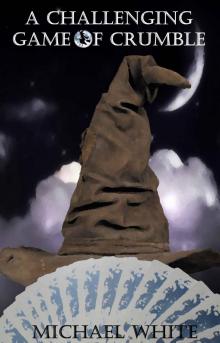 A Challenging Game of Crumble
A Challenging Game of Crumble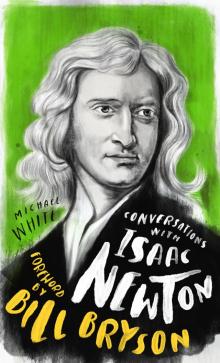 Conversations With Isaac Newton
Conversations With Isaac Newton The Complete Adventures of Victoria Neaves & Romney
The Complete Adventures of Victoria Neaves & Romney Liverpool Revisited
Liverpool Revisited Dad Comes to Visit
Dad Comes to Visit Lachmi Bai, Rani of Jhansi: The Jeanne D'Arc of India
Lachmi Bai, Rani of Jhansi: The Jeanne D'Arc of India Barf the Barbarian in Red Nail (The Chronicles of Barf the Barbarian Book 2)
Barf the Barbarian in Red Nail (The Chronicles of Barf the Barbarian Book 2)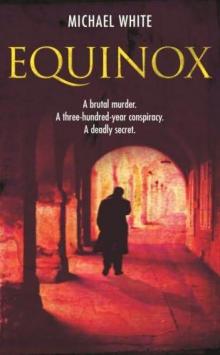 Equinox
Equinox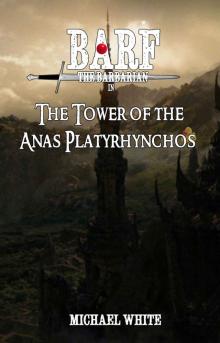 Barf the Barbarian in The Tower of the Anas Platyrhynchos (The Chronicles of Barf the Barbarian Book 1)
Barf the Barbarian in The Tower of the Anas Platyrhynchos (The Chronicles of Barf the Barbarian Book 1)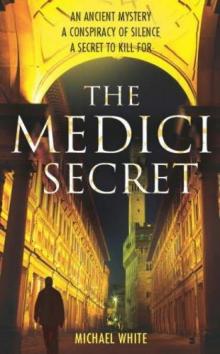 The Medici secret
The Medici secret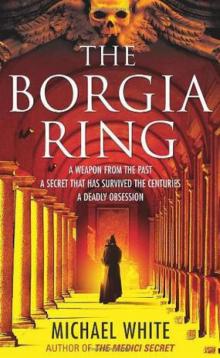 Jack Pendragon - 02 - Borgia Ring
Jack Pendragon - 02 - Borgia Ring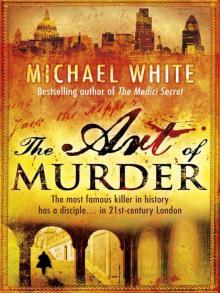 The Art of Murder jp-3
The Art of Murder jp-3 Travels in Vermeer
Travels in Vermeer